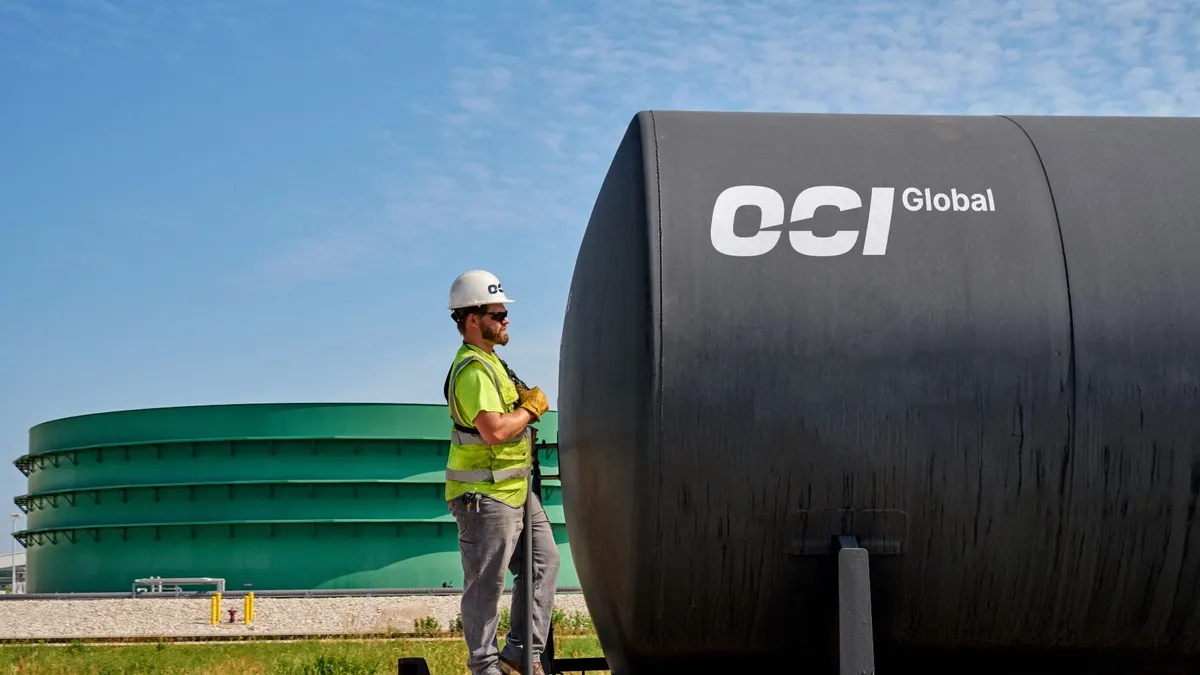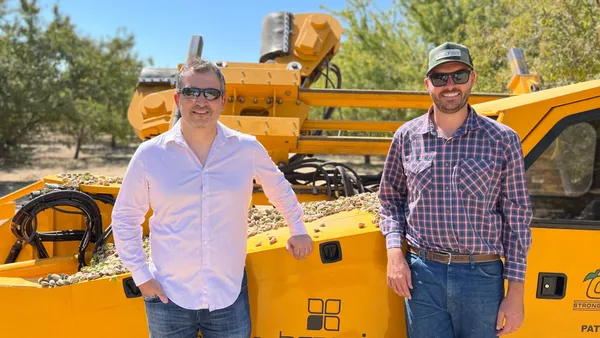Dive Brief:
-
Iowa lawmakers and farm advocacy groups are calling for U.S. regulators to intervene in Koch Industries’ pending acquisition of a fertilizer plant, citing industry consolidation concerns.
-
The Iowa State House Democratic Caucus sent a letter to the Federal Trade Commission and Justice Department, urging an investigation and potential action against the $3.6 billion acquisition of OCI Global’s equity interests in Iowa Fertilizer Company LLC.
-
If the deal goes through, it would “further entrench Koch Industries’ already dominant position in the fertilizer sector,” a number of farm groups warned in a similar letter. Lawmakers also raised concerns about the effect further consolidation could have on fertilizer prices and the job security of plant workers.
Dive Insight:
The acquisition of OCI Global’s assets in Iowa would expand the operational footprint of Koch Ag & Energy Solutions, a subsidiary of Koch Industries that focuses on fertilizer, energy and methanol services. Opponents warn that the impact on farmers and the markets could be detrimental.
Currently, four firms control about 75% of the production and sale of nitrogen-based fertilizer in the U.S.: CF Industries, Koch, Nutrien and Yara-USA. This is down from “46 firms making nitrogen” in the 1980s, according to nonprofit The Open Markets Institute, affecting overall fertilizer supply and production.
Rep. J.D. Scholten of Iowa, who spearheaded a letter signed by every Democrat in the statehouse, told Agriculture Dive in an interview that there needs to be more competition in the U.S. fertilizer industry as prices continue to rise.
“What’s happening is the average farmer is being squeezed by inputs and it’s pricing a lot of farmers out,” Scholten said.
The OCI factory was first proposed in 2012 as a way to reduce reliance on imports and create more competition in a consolidated fertilizer market. The Lee County processing plant opened in 2017 and there are currently 250 workers at the facility, which produces about 2 million tons of fertilizer per year.
The development also fueled economic interest and unlocked big tax incentives. Ultimately, the facility received more than $500 million in local, state and federal taxpayer funds, according to a letter dated Jan. 22.
“To safeguard our economy and indeed our democracy, our enforcers must prevent dominant firms from capitalizing on investments made with public resources,” a consortium of 18 farm advocacy groups said in a letter to the Federal Trade Commission and Justice Department.
The call for U.S. regulators to intervene could hold water given the administration’s new focus on labor markets when assessing deals. The FTC and Iowa’s office of the attorney general have followed up about the letters, Scholten said, and “are definitely looking into it.”











